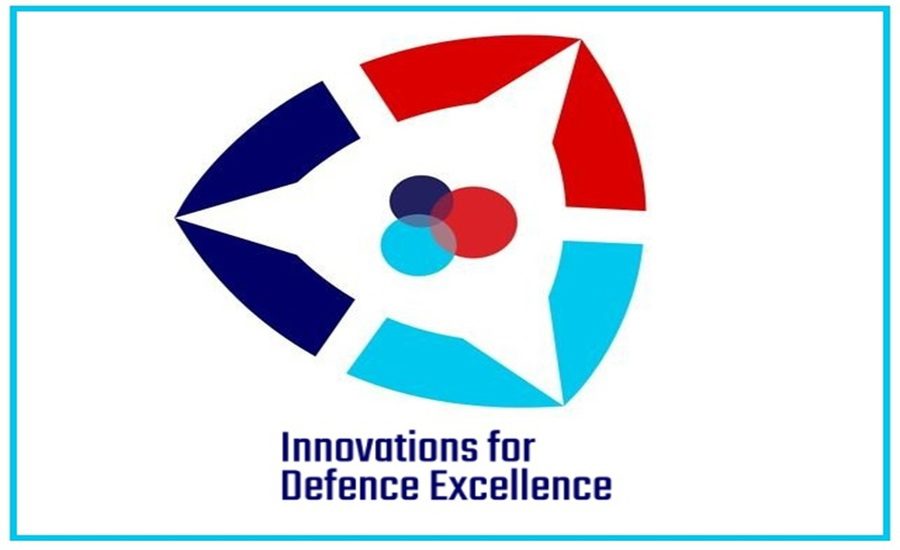New Delhi: According to a recent IANS report the iDEX initiative has secured 650 innovation & defence development contracts worth roughly US $344 million (≈ ₹3,000 crore). These contracts span more than 50 technology categories, including unmanned aerial & ground systems, AI-enabled surveillance, encryption based communications, advanced propulsion and miniaturised guidance.
The report notes that the ongoing projects don’t just serve defence but also spill over into civilian sectors—disaster management, space, cybersecurity, energy.
What is iDEX Initiative
The iDEX initiative, launched in April 2018 under the Defence Innovation Organisation (DIO) of the Ministry of Defence, India is pushing hard to transform its defence innovation ecosystem.
Read Also: Meet Pravaig VEER EV: India’s First Defence EV – A Silent Warrior for the Next-Gen Battlefield
With the aim of integrating start-ups, MSMEs, innovators and armed forces needs, iDEX became a central plank of the “Aatmanirbhar Bharat” (self-reliant India) defence manufacturing drive.
Why iDEX Initiative Has Become a Game-Changer
1. Direct Link Between Innovators and Armed Forces
iDEX is structured to connect start-ups and MSMEs with actual problem statements from the armed forces, rather than a detached R&D exercise. It supports grants, incubation, prototyping and eventually procurement under the newer procurement framework of the defence ministry.
2. Large Scope & Significant Funding
- More than 10,000 applications have been received since inception.
- Over 350 start-ups and 100 MSMEs are actively involved.
- Grants under the DISC (Defence India Start-up Challenge) go up to around ₹1.5 crore, and under ADITI (Acing Development of Innovative Technologies with iDEX) scheme up to ₹25 crore for high-value tech.
3. Alignment with “Make in India” & Indigenous Manufacturing
iDEX is not purely an innovation for the lab. Its vision is to feed into indigenous manufacturing, supply-chains and long term defence industrial base. The report notes this is now a “cornerstone” of the Indian defence ecosystem.
4. Spill-Over Effects into Civil Economy
Beyond defence, the technologies developed under iDEX are having applications in civilian domains—cybersecurity, space, energy, disaster management—boosting the spin-off benefits.
Key Figures & Milestones of iDEX Initiative
- 650 contracts awarded under iDEX → ₹3,000 crore) in value.
- Over 50 technology categories covered, including unmanned systems, AI surveillance, encryption, propulsion, miniaturised guidance.
- As of Feb 2025, 619 startups/MSMEs registered, 430 contracts signed under iDEX.
- In FY24 defence production rose to ₹1.27 lakh crore and exports went up significantly.
Face Behind iDEX Initiative
One of the authoritative figures behind the iDEX and wider defence innovation push is Ajay Kumar (civil servant).
During his tenure as Defence Production Secretary (and later Defence Secretary), he guided the formulation of the iDEX framework, expanded private-sector participation and aligned policies with “Atmanirbhar Bharat”.
Under his policy stewardship, the system of problem-statements, start-up engagement, link to procurement was institutionalised.
Importance of iDEX Initiative for India’s Defence & Innovation Future
Deep-tech Defence Ecosystem: India is shifting from being a large buyer of foreign defence systems to being an innovator and manufacturer of technologies.
Import-Substitution & Export Potential: With indigenous capability rising, import dependence can reduce and export potential can increase.
Economic & Employment Impact: MSMEs, start-ups, regional defence manufacturing hubs (e.g., in Uttar Pradesh, Tamil Nadu) are gaining traction — boosting jobs, investment and regional growth.
Geostrategic Strength: A stronger indigenous defence base strengthens India’s strategic autonomy in a volatile security environment.
Innovation Culture: Encouraging the culture of start-ups, cutting-edge tech, collaborative defence R&D en-route to modern battlefield needs (AI, drones, cyber, quantum) helps future-proof India’s armed forces.
Major Challenges & Road-Ahead
While the data indicate strong progress, experts note:
Funding adequacy: Earlier reports suggested the iDEX budget was largely committed and further funds were needed.
Procurement follow-through and scaling: Innovation is good, but mass production, standardisation, supply-chain integration are critical next steps.
Regulatory & ecosystem hurdles: Start-ups still face challenges navigating defence procurement, certifications, IP issues, and integration into larger platforms.





























